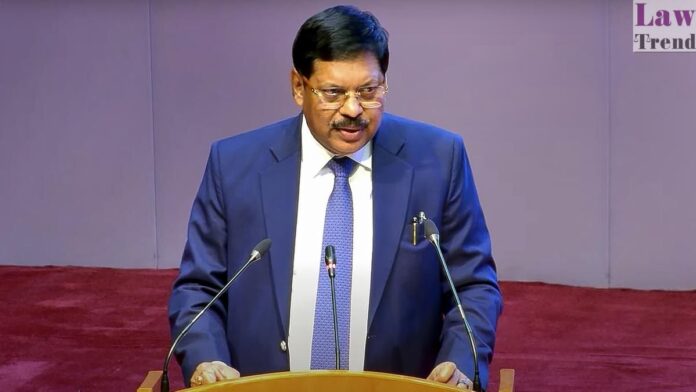Chief Justice of India (CJI) B.R. Gavai on Wednesday emphasised that legal education must not be confined to producing professionals for the bar and bench, but should also cultivate citizens deeply committed to the ideals of liberty, equality, and fraternity.
Inaugurating the first Professor (Dr) N.R. Madhava Menon Memorial Lecture on “Legal and Justice Education @2047: An Agenda for 100 Years of Independence”, the CJI said the journey towards 2047 must remain anchored in professional skills, social justice, technological innovation, and unwavering constitutional values.
Highlighting barriers of geography, language, and economics, CJI Gavai observed that marginalised and vulnerable citizens are often excluded from legal institutions. He warned that economic disadvantage makes legal remedies inaccessible even when they exist.
“If law is to be truly a tool of empowerment, dismantling these barriers is essential,” he stressed, calling for the expansion of technology-driven education, regional language instruction, and stronger legal aid initiatives.
The CJI also underlined the ethical responsibility of law schools to instil constitutional values and urged the creation of robust research institutions for emerging areas of law.
However, he sounded a note of caution regarding the dominance of the National Law School model, observing that while it has been transformative, it has channelled many graduates towards corporate careers rather than community lawyering. “The true power of a legal professional lies not merely in knowing the law, but in using that knowledge to uphold justice, protect democracy and stand unflinchingly for constitutional values in times of trial,” he said.
Delivering the memorial lecture, Supreme Court judge Justice Surya Kant identified three fundamental pillars for the future of legal education: modernisation, ethics, and inclusivity.
He pointed out that National Law Universities, once known for innovation and meritocracy, now face critical faculty shortages, while the high costs of education are limiting access to a privileged few. The dream of community-based justice delivery, including Gram Nyayalayas, remains largely unrealised, he added.
Justice Kant stressed the urgency of abandoning outdated academic models and embracing digital-first pedagogy integrated with interdisciplinary learning. “Every aspect of legal practice is increasingly intertwined with technology, yet too many law schools cling to outdated approaches,” he said.
Calling for compulsory legal aid clinics in all law schools, he underlined that legal education cannot remain detached from society. “The study of law must never be carried out in ivory towers… it must be rooted in the lived experiences of the people it seeks to serve,” he asserted.
Both CJI Gavai and Justice Kant converged on the vision that by 2047, India’s legal education must evolve into a system that is accessible, ethical, technologically advanced, and deeply committed to the constitutional ideals of justice, liberty, and equality.




